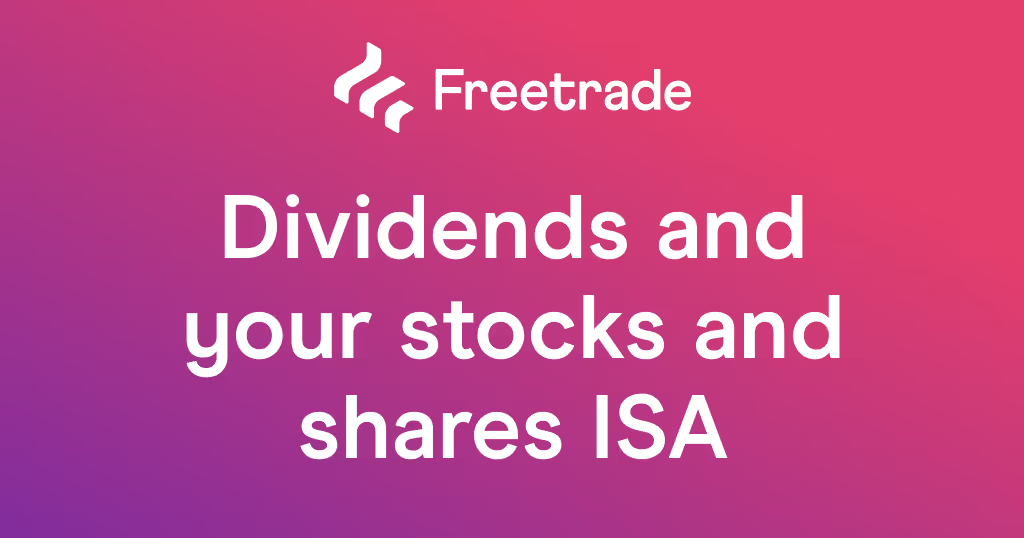We’re generally advocates that almost everyone should be an investor — in fact, in a way everyone already is.
But what can you actually buy when you invest?
As a stockbroker, we offer investments in stocks, exchange-traded funds (ETFs), and investment trusts - assets you can trade on an exchange.
But there’s an ever wider universe of securities and assets out there. And every broad class splinters off into new weird and wonderful forms, like Darwin’s finches in the Galapagos.
We won’t offer many of these assets and some of them would never be used by anyone except finance professionals, but we believe that everyone should be armed with information.
Here are most of the most important ones (aside from Crypto-assets — we’ll cover those another time!)
Vanilla securities
Some of the most liquid, straightforward assets
Public stock
Stock in a publicly traded company, listed on one of many stock exchanges. Companies reach a certain size and decide to offer an ownership stake to the public. This stake takes the forms of shares, which can then trade indefinitely over a public exchange.
The terms ‘stock’ and ‘share’ can be somewhat conflated in general discussion, but they do carry certain (historical) distinctions.
Learn more
How to invest in stocks - guide
An ownership stake in the company can also be called equity and stocks are often referred to as equities. The first offering of equity to the general public is called an IPO: an initial public offering.
IPOs are good for the company because it gives them a huge opportunity to raise money from a massive pool of investors. They’re good for founders and owners because they give them flexibility to convert their stakes into money — with certain restrictions they can now sell their own shares (or some of them) to everyday investors.
The company only raises money for itself through the sale of shares during an IPO and any subsequent offerings of newly created shares.
Otherwise, shares in the company trade between different investors, without the company raising additional money.
Sovereign bonds
A loan you extend to different governments around the world. In the US they’re called treasuries, in the UK they’re called gilts. Bonds are bought with a set term, from a few months to decades.
The bond pays out a regular interest payment throughout the term and repays the principal (the amount you loaned them) at the end of the term (maturity). Generally, the stronger and more stable the government and its economy, the lower the interest rate on the bond. This reflects the low risk you assume in making the loan.
Corporate bonds
An interest-bearing loan to a company. A bit riskier than a government bond, because companies fail more often than (most) governments.
A world of funds
The biggest shared benefit of funds is instant diversification across assets or asset classes
ETFs
An exchange-traded fund. A basket of many stocks or assets combined into one company, which you can then trade like a stock. They can be highly focused and actively managed with a particular investment approach or passively track an asset (like gold) or an entire stock index.
Mutual funds
Investment vehicles that pool investor money to buy equities and other assets. Like ETFs, they vary hugely in structure, strategy, management and asset choice. Again like ETFs, they’ll have management fees. Unlike ETFs, a share in the fund doesn’t trade like a stock and the fees will be higher. Relative to ETFs, they’re more likely to be actively managed by a particular team or person or have a more discretionary approach to investing.
Hedge fund
The darkest forces in finance according to popular media. A hedge fund invests in innovative and complex strategies and a range of different asset classes. The aim is to outperform the markets by avoiding downs and exceeding ups.
The name arose from one of the earliest strategies: combining long and short positions to “hedge” bets and make money no matter what happened. Now, they vary hugely by approach, complexity and focus.
Hedge funds aren’t too directly relevant to most people, because you have to be a ‘sophisticated investor’ to buy in as an individual. This doesn’t mean interesting glasses and a killer poetry collection — it’s more to do with net worth and a recognised knowledge level. Fees are also usually much higher, in return for supposedly superior money management.
Most people don’t invest in hedge funds, but some big pension funds do, so you could potentially have some exposure to them.
Private equity funds
These funds invest in stakes or total ownership of private companies. Usually private equity funds raise their initial money from large institutions or wealthy individuals, but some big funds list as public companies so investing in them is as simple as buying a share.
Tangibles & the everyday
Assets you’ll come across in your daily life
Cash
Cold hard cash in your pocket, a cash ISA, a savings or current account. When inflation is high or interest rates are low (or both), returns on cash lag behind other investments.
Foreign currencies
Exchange rates are constantly shifting through supply and demand. You can exchange one currency for another and make or lose money based on the shift in rates. FX (foreign exchange) markets see huge traffic from both major institutions and independent day traders.
Commodities
“Gold, silver, platinum, heating oil, propane, cocoa and sugar and, of course, frozen, concentrated orange juice.”
All the world’s resources are assets. A huge proportion of commodities trading is based purely on financial speculation with no intention of taking delivery of the actual goods.
The price of many commodities — like oil or aluminium — is influenced by the context of the industries and economies that use them.
Precious metals, like gold, silver and platinum, however are priced more in relation to confidence in other assets. When investors feel that equities or currencies are weak, then they tend to turn to the perceived safety of these tangible assets.
You can buy commodities contracts directly, but the simplest way to invest in a commodity is through a specific ETF.
Property
Or real estate, if you want to sound smart. 🤓 Anything from your own house to rented flats to massive commercial properties.
Derivatives
So called because they derive their value from another underlying asset.
They can be used to speculate on a huge number of other assets, including many of the above. They also usually offer greater leverage than other investing methods, meaning your initial stake can be much lower than the potential gain or loss.
Options
Options are a security that gives the owner the right but no obligation to buy (or sell) another asset at a pre-specified price. Often used when companies want to grant equity to employees.
Futures
Futures are a security that obligates a buyer or seller to buy or sell a particular asset at a pre-specified price at some point in the future. The buyer or seller predicts that the pre-specified price will change to their advantage.
Example
An ambitious trader reckons oil is overpriced because he believes people will buy more and more eco-products and world demand for oil will decline over time. He sells a futures contract that obliges him to sell 500 barrels of oil for today’s price in 3 months time. Someone who reckons otherwise buys the contract, taking the other half of the deal.
If the first trader’s right and the price goes down in 3 months, he can buy those 500 barrels for the lower price and pocket the difference. If he’s wrong, he loses.
Mortgage-backed securities
Take some mortgages, bundle them up into one financial instrument which yields the accumulated return on the mortgage loan. What could go wrong? 🤦
Mortgage backed securities played a heavy role in the 2008 financial crisis, as at the time it was an easy way to package relatively risky (subprime) mortgages into seemingly secure, professional assets.
Credit default swaps
A derivative that acts as tradable insurance on a loan or bond. Essentially if the debtor can’t pay the interest (i.e. they default), a CDS triggers a payout to the owner — who may not even be the original lender.
They were also heavily traded during the financial crisis, with many individual fortunes made as multiple debtors defaulted.
So that’s pretty much it? 👌
Of course it isn’t. There are many more micro-classes and specialised assets we haven’t covered — you can go and explore them.
But this will equip you with more than enough info to bestride any finance-related conversation like an investing colossus and show off with smug comments like: “Of course, when hedge funds looking to exploit market inefficiency saturate the market, they become the market.”
And ultimately, that’s what financial education is all about. 🙏
When you invest, your capital is at risk. The value of your investments can go down as well as up and you may get back less than you invest.Freetrade does not give investment advice and you are responsible for making your own investment decisions. If you are unsure about what is right for you, you should seek independent advice.


.avif)




.avif)

.avif)



